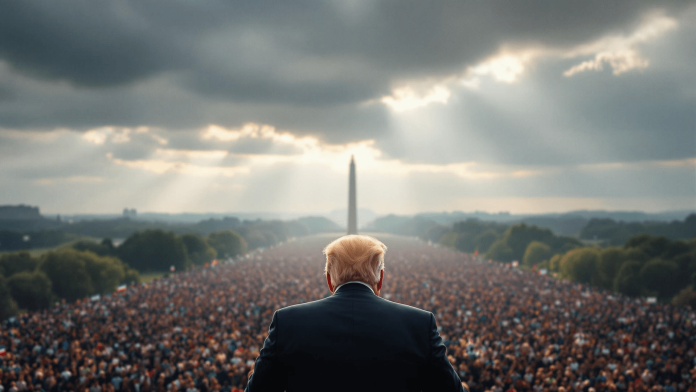The President of the United States is often referred to as “the leader of the free world,” a title implying unparalleled authority, wisdom, and influence. But are presidents truly leaders in the sense of guiding people toward better behavior, stronger morality, and sustainable independence? Or are they merely administrators of a vast system that reinforces dependence on the office to solve problems for the populace?
In reality, the success of a nation depends far less on its president and far more on the culture, morality, and behaviors of its people. Let’s examine this dynamic and explore whether presidents are leading—or just managing symptoms of a deeper societal struggle.
The Myth of Presidential Leadership
When we think of leadership, we envision someone who inspires others to be their best, to take personal responsibility, and to work toward shared goals. While many presidents give stirring speeches and promise change, their role largely revolves around policy, administration, and enforcement.
Instead of inspiring citizens to solve problems themselves, presidents often position themselves as the ultimate problem-solvers. They craft policies, sign executive orders, and pass legislation designed to address the symptoms of societal decay, but they rarely address the root causes: the moral failings, cultural shifts, and behavioral trends that ultimately define the trajectory of a nation.
By reinforcing the notion that solutions come from above, they foster a cycle of dependence. Citizens grow to expect the president to fix everything—economic woes, cultural divisions, and even personal grievances. This undermines the very independence and self-reliance that make communities and nations strong.
Culture and Morality: The True Foundation of Success
A nation’s success is not defined by its president but by the moral character of its people. The founding fathers of the United States understood this deeply. John Adams famously said, “Our Constitution was made only for a moral and religious people. It is wholly inadequate to the government of any other.”
When individuals live by principles such as honesty, diligence, and accountability, society flourishes. Families become stronger, communities more cohesive, and economies more resilient. These virtues cannot be legislated or mandated by a president. They must come from within the hearts and homes of the people.
Without a strong moral foundation, even the most well-intentioned policies will fail. A government cannot effectively manage a society that lacks self-discipline and shared values. Presidents may try to steer the ship, but without a united and morally grounded crew, the ship is destined to drift.
Presidents as Managers, Not Leaders
In truth, presidents are more like managers than leaders. They inherit systems, attempt to optimize them, and react to crises. While a manager might improve operations within a company, they cannot transform the character of the employees. Similarly, a president can only do so much to address the deeper issues within a society.
Leadership in the truest sense comes from the bottom up. Parents teaching their children values, neighbors helping one another in times of need, and communities holding one another accountable—these are the forces that truly guide a nation.
When citizens abdicate their responsibility for personal and communal growth, they create a vacuum that no president can fill. Rather than looking to the Oval Office for guidance, we should look to our own homes, churches, and communities for the leadership we crave.
The Danger of Dependence
Perhaps the most troubling consequence of viewing presidents as leaders is the dependence it fosters. This dependency mentality weakens the initiative of individuals and communities. Instead of taking ownership of their problems, people demand that the government—or the president specifically—solve them.
Over time, this erodes the independence and creativity of the citizenry. People stop asking, “What can I do to help?” and start asking, “What will the government do for me?”
This mindset perpetuates a vicious cycle: politicians promise to solve problems, citizens vote for promises, and when those promises inevitably fall short, trust in the system declines. Meanwhile, the real solutions—those that require personal effort and local action—go overlooked.
What Should Presidents Lead?
If presidents are to be leaders, they should focus on inspiring independence, morality, and a culture of self-reliance. Instead of promising to solve every issue, they should encourage citizens to take responsibility for their own lives and communities.
Imagine a president who says, “The government is here to protect your freedoms, but the quality of your life depends on what you do with those freedoms.” Such a message would shift the focus from dependence to empowerment.
The best presidents in history have been those who understood this balance—leaders who governed effectively while reminding the people that the true power of a nation lies in their hands. Unfortunately, such leadership is rare in a political climate driven by power, promises, and popularity.
The Real Leaders Are Among Us
Presidents may occupy a prominent role in the national consciousness, but their ability to lead is limited. True leadership comes not from a politician in Washington, D.C., but from the everyday actions of ordinary people.
If we want a thriving nation, we must stop looking to presidents to guide us and start leading ourselves. By prioritizing morality, fostering a culture of accountability, and taking responsibility for our communities, we can create a society where the office of the president is not a crutch, but a reflection of the strength and integrity of its people.
A president may sit in the highest office, but the real power—and the real leadership—lies with us.


